|
Ten days ago I co-led a workshop called Dealing with Conflict. Participants raved about it. My co-leader, a wizard in the world of relationship coaching, and I had a blast. Then today was living proof of why people say, "What you want to learn, teach." Today the universe tested me: Do you practice what you preach? Are you living what you teach? I woke to make Earl Grey tea and found a mean spirited comment awaiting on a social media post I'd written about my next workshop, called Radical Love in Parenting. Profane name calling, insults, mean spirited aggression, it was all there. For a moment I thought of deleting it. We get to choose what we expose ourselves to, as humans, and I very proactively choose and create a loving world. Why would I allow such hatefulness on my page? Well, because hate can only project itself outwardly when it is felt inwardly, too. And it is my pledge of allegiance in this life, to love people -- even when they're mean -- not to add pain to pain by being mean back, or abandoning them.  Gut said: Keep it. This person is in pain. Deal with conflict. Be with conflict. See if you can help it dissipate in the presence of Love. And so I replied, to the best of my ability staying in a place of grace and strength, not embodying any of the qualities I don't want more of in the world: harsh criticism, judgment, violence. It may not have been a perfect response but I was proud of it. I was facing conflict in a way that felt self-honoring: inviting this person to consider a way of communicating that was respectful (differences being perfectly OK, but not meanness) and yet being "my own big sister" in clearly stating meanness wouldn't be allowed in this Leaning into Light community. I drove to a cafe to work for the day, feeling vividly content with who, and how, I was being. In the hours that followed, life showed me the glistening jewel within conflict. Why it can be so helpful to a warrior for Love, how it can stretch us to our next edge in living the life that we dream of: a richly fulfilled, courageous and dazzling-with-light, existence. If you missed our Dealing with Conflict workshop... shucks! We'll offer more. Popular stuff. But here are a few simple tips to rise above the war zone, rather than sinking into its muck. 1) Pause. The ever-undervalued pause. Let yourself process first. If you're emotionally triggered, you can take space. You don't need to respond right away. Take a break. An hour, 10 minutes, a day, what do you need to find more neutral ground before responding? Responding defensively and immediately can be harmful and further aggravating. 2) Don't take it personally. Remember Don Miguel Ruiz's book, The Four Agreements? Slam dunk on that one, #2, Don't take anything personally. Master that one and you're on your way, Baby. Big stuff. Remember that what someone else says, says far more about them than it does about you. If someone is harshly critical, consider the wounds inside of them and have compassion. Or dig it up. (And if someone is openly loving, hmmm, that may be someone you want to spend more time around, eh?) 3) Respond with strength and grace. Honor yourself. Be your own big sister or big brother. Stand for your own values and vision; you are their best friend. Clarify what you intended, if you were misunderstood. Take responsibility for your role, if it is clear what your role is. Were your actions or words in alignment with who and how you want to be in this world? If not, own it. Acknowledge it. Put yourself in their shoes. 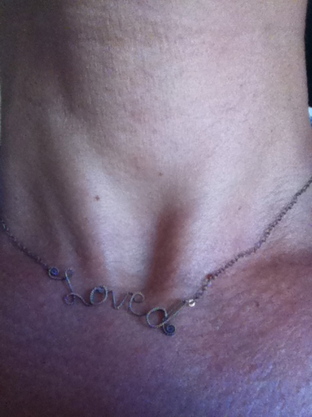 Using those guidelines to the best of my ability, I felt stretched in all the best ways, my emotional and spiritual capacity widened up to greet life more fully for the sake of my well being and everyone else's. And then a post arrived, from my friend and collaborator Olivia. In one of my favorite ways love gets expressed: the written word. From someone I met while we served as President and Vice President on a Board of Directors together. We loved working together so much that we now co-lead The Sisters Series for Leaning into Light's workshops. Since I am such a fan and practitioner of PDA (Public Displays of Affection) I will share it here, with an enormously grateful heart. She wrote:
Dear Jessica, I drove home the other day, from a really fun time with sister, aunt, friend. I was thinking about you. And how, from the moment I met you, you have influenced me. It wasn't always comfortable. Sometimes when someone's vocal way of being (you are very vocal), comes up against your edges, it can be painful, because she is actually shining so much light, that it challenges how you may speak, or think or act. It challenged me, it inspired me. There were some very deliberate ways that you communicated (pausing to take in a situation, taking the time to articulate what you ACTUALLY wanted.... not just saying things to be agreeable), pointing things out, taking the time to address them, challenging a group to be better!!!!!! Let's be better, let's live this life as brings the most peace to the most people on earth as possible. Any how. Your being, how you are, made me look at how I wanted to be. And explore those edges... inspired me to speak my truth, in a gentle, loving, respectful way... because then, more people win. I have also noticed that if I am feeling out of integrity in any particular area in my life -- maybe not a big deal thing, maybe a big deal thing -- that being with you can actually feel hard... and again, it's because I find you to consistently speak so much from a truthful heart, that, if I am not in a similar moment myself... it shines light on those areas of pain. But, here's the thing... YOU LOVE. And are so good at it. That... it just invites more love, and light to get its groove on, and show up. That's rad. The work you do with Leaning into Light, the workshops, the blog posts... they are you! And they are an invitation to anyone who wants to explore their edges, take time to reflect on what is important to them, and to be given really simple, strong support to make those small or big changes that actually shift things. It's awesome. Thanks for the work you do. Olivia Conflict gave me a big, bold invitation to become a stronger, more powerful and loving communicator. Conflict showed me what I've learned. Conflict showed me that I practice what I preach. Conflict need not be fed with our attention; it CAN dissipate with Love. And with that, I exhale one giant breath of thanks for being on this fine planet, in such fine company, for one more day. Good night, friends.
2 Comments
I'll just go ahead and call it like I see it. Most people aren't great at dealing with conflict. Name calling, blame, high levels of defensiveness, resentment... It's not easy to remain respectful in the heat of an intense disagreement. We are all unskillful sometimes. Yet there are people I know who are very good at dealing with conflict, and I'd like to be more like them. They're not always gracious, they slip up sometimes, but they've courageously faced enough conflict that they've gotten really good at learning from it rather than becoming its victim. 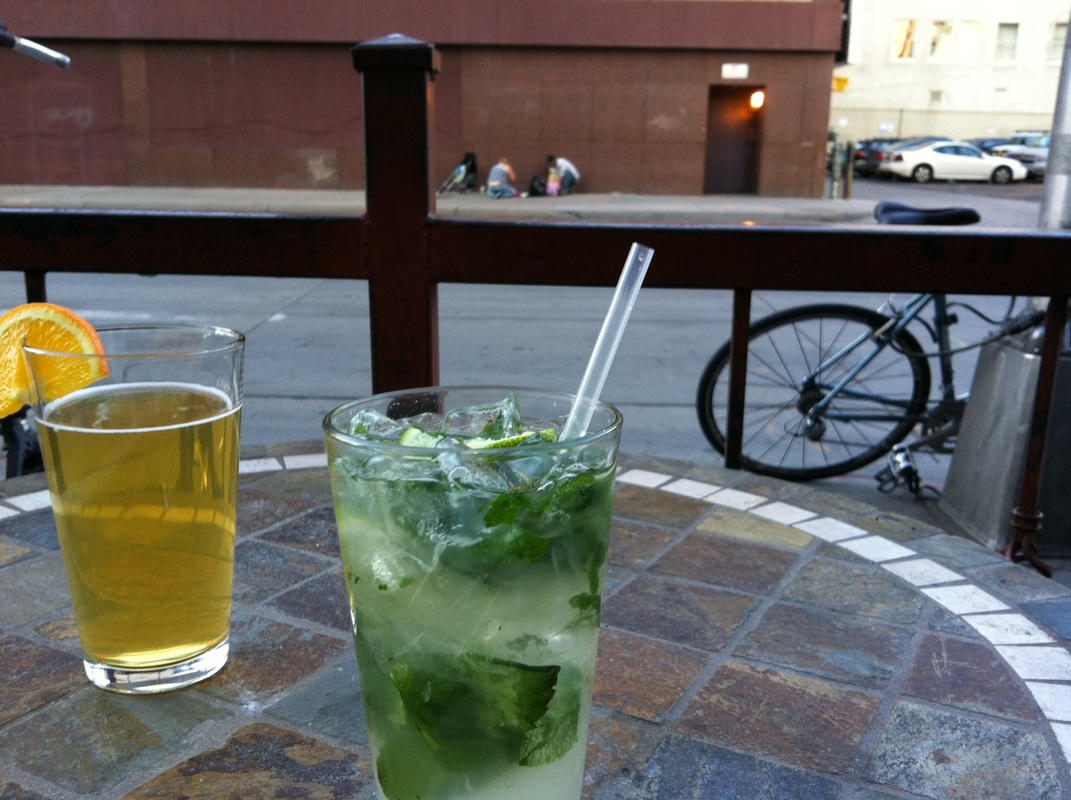 For those who seek to be better communicators until the day we die as I do, who will never stop wanting to love more deeply and show up more powerfully for ourselves and others, I offer this interview. Here are two questions about dealing with conflict in relationship, and their answers from a man who's considered a wizard in the world of coaching, Master Relationship Coach Charles Zook. How does conflict affect relationships? Is it all bad, or is there a benefit to conflict sometimes? The impact of conflict depends largely on how we engage conflict. If done skillfully it can be a huge contribution; if done unskillfully it will likely result in a lot of toes being stepped on, so to speak. The culture and history most of us live in does not support education and modeling regarding skillful approaches to conflict (look around, lots of unskillfulness out there!). In every moment of our lives, and of our relationships, there is "Glass Half Full" (things that are fulfilling the way they are) and "Glass Half Empty" (things that are not fulfilling the way they are). Conflict generally falls under the Glass Half Empty umbrella. In our culture we tend to interact with Glass Half Empty with a "what's wrong" conversation. We are well trained and quite experienced with this type of conversation. We can tell you what's wrong with just about anything, especially our partners! 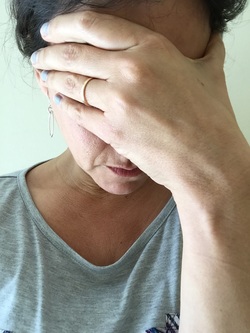 Developing a more constructive relationship with conflict starts with shifting from "what's wrong" to "what is wanting to happen." It is kind of like the shift from movie critic to movie director. A movie critic states, "I did not like this part", but does not have to address, "so what would you do differently to make it better?". To experience benefit from conflict we need to challenge ourselves to move from movie critic, "let me tell you what is wrong with this relationship," to a more challenging conversation, "what are we learning from this and how can we integrate this learning to make our relationship better in the future?" Learning how to do this is challenging but potentially very rewarding. Yet not learning how to do this is also challenging, and largely lacks any sense of progress, fulfillment, power, or self determination. How do we tell the difference between projections and other people's work?
Messy question reflecting a reality that is messy. From a Newtonian world view -- one that sees the future as determined by the past -- we should be able to parse these out. A certain percentage is projection, the rest other people's work, it varies by situation, like that. From a more Quantum Physics world view -- one that sees the future as TBD/to be determined, full of possibilities -- it is more holographic. Each component is there completely, and depending on what you are looking for, you will find it. In practical terms this may not be very helpful so far, but we need to establish that there is no measurable reality about this stuff, it is more a discussion about how can we approach this in ways that leads to fulfilling outcomes. The foundational assertion is that "If we tell enough truth, it will sort itself out, we will discover what is wanting to happen, we will reveal next step(s)." Without a specific example, I will address this conceptually. When dealing with yourself: Compassionately start with curiosity from the perspective of it is ALL me. What is my role in this? What is it I am wanting to learn from this life experience? What am I feeling? What do I need? If I could interact with this situation in a manner that reflects my values and vision, what would that look like? What to I want to create going forward? What could I do differently in the future that would contribute to different outcomes? Like that. Look for the gold of what there is to learn by approaching the situation as if there was something for you to learn and do differently in the future. When dealing with another, compassionately start with curiosity about the whole situation. What was their experience? What are they feeling? What do they need? How was the situation different than how they would like it to have been? What would they like to create going forward? What requests do they have? AND, are they interested and willing to hear your experience? If we are seeking to be right and avoid being wrong, then the interaction will center around that concern. If we can let go of the need to be right and avoid being wrong, we can listen and learn and problem solve and come up with creative ideas about how to do things differently in the future. - - - Thank you to the people who offered questions for this interview. And thank you for your generous sharing and wisdom, Coach Charles. To everyone reading: Was this helpful? What are YOUR questions about conflict? We're happy to keep offering insights as long as you share questions. You can post your questions anonymously or include your name; it's up to you. Those wanting a clear and practical tool that works, to deal with conflict, can join Charles and me (Jessica Rios, Founder, Leaning into Light) as we co-lead a 90-minute phone workshop on Sunday March 20th: Dealing with Conflict. Cost is $28pp, limited to the first 20 participants. Sign up here! 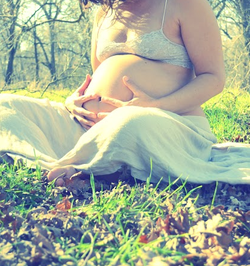 My mother, Carmen, isn't a midwife according to popular definition. Yet she most certainly is a midwife. As a high risk birth labor coach with the Companeras program based in San Rafael, California, she has attended 100s of births, touching deep into the hearts and lives of many women who've come to call her their children's Godmother. And the bond between her and her clients runs just as deep with the mothers whose babies die. My mother is an angel. mid·wife ˈmidˌwīf/ noun 1. a person (typically a woman) trained to assist women in childbirth.verb verb 1. assist (a woman) during childbirth. In honor of International Women's Day, I dedicate this piece to my mother. March 8th is also the birthday of famous midwife Ina May Gaskin, and forty-one years after my mother gave birth to me, her third child. In celebration, I decided to interview my mother about her work. Decades of admiration, from me and my friends who've met her and heard her stories, all led up to this conversation. It is my simple and heartful tribute to my own beautiful mother, and to women and mothers everywhere. Me: What do you do?
Carmen: I support Spanish speaking pregnant women with high risk births both during pregnancy and labor, and in the intensive period after the birth. Why do your clients need you? They need us to help them understand what’s happening with their pregnancy, since they aren’t native English speakers. Culturally they need us because of the language differences among Spanish speaking countries. Something we say in Guatemala might mean something totally different in El Salvador. Speaking a shared language bonds people together, so the women often benefit a lot from our connection with them. Our clients are not used to asking a lot of questions, so we help them communicate. They understand the process more, and eventually they feel safer because of our bond. Why do high risk births happen? A birth is termed high risk for two reasons: medical or trauma related. It’s common that there’s some sort of trauma that has not been healed. And usually when a woman is pregnant, unless her life's trauma has been dealt with, it tends to arise. For example women who have been raped at the U.S. border, they come here to work, they don’t want to deal with it or think about it, and all of a sudden they don’t have a menstrual period and Boom. There’s also domestic violence, childbirth sexual abuse or drug addiction. Being a pregnant teenager entails a high risk birth too, because you don’t always have the support of your family, or you may have been raped so you’re dealing with trauma. Being a teen mother puts babies at risk because teens aren’t necessarily prepared to be mothers. The stress level and other challenges in parenting can be too much for the new mother. How many stillborns have you attended? There have been six stillborns. Three of the babies were anencephalic, and one of them was Wolf Syndrome. The other two died as they were born due to abnormalities including chromosomal problems. One baby lived two minutes and the other baby lived 17 hours. What is the best part of your work? Helping women. Helping women to be more informed about breastfeeding, postpartum depression, what labor is like... that they have choices. They have choices during labor and it’s important to be informed before you go into labor. What is the most challenging part of your work? Family members of the pregnant women. Family members have their own ideas about birth, and they’re not always well informed in a way that’s helpful to the woman. They tend to give misinformation. Clients need to have all the information and then they need to make a well informed decision for themself and their baby. One of the hardest things is to have a teenager who’s pregnant and her annoyed mother in the same room. Her mother fills that room with fear because she’s totally annoyed at her child who is pregnant. What is the most important thing you say to mothers whose babies don’t survive? I say very little. In situations like that. The phrase that I use is “Silence is golden.” I wait for them to ask. If they ask for specifics, I tell them the truth. Honesty. On any medical question they ask me I refer it back to the doctor. Often mothers tend to blame themselves. Simple words can be helpful. I say, “What did the doctor tell you? This has nothing to do with eating or drinking…” You can help the mother to try not to blame herself. “If it’s a chromosomal problem, it’s not what you ate.” The most important thing is to be present. To know they can pick up the phone and ask me a question, and if I can’t answer it, I will make calls to find the answer. And to support these mothers who lose babies after the baby is born, because that’s... a big job. What would you say to women who have healthy live births? A child is a gift. I’ve even had a couple clients who have been raped and choose to have their babies. Who’s anyone to say you should have an abortion just because you’ve been raped? It’s an innocent child. Everyone makes their decisions and they have to live with their decisions. It’s very important to respect your client, because it’s easy to be shocked with things that people say. To not be reactive, if they tell you that they have been raped, to treat what they say as confidential. A child is a gift. Bless every drop of your beautiful Puerto Rican blood, my dear mother. I am completely honored to be your daughter. |
AuthorJessica Rios, Founder of Leaning into Light, was born with a divine pen in her pelvis. Her heart writes for her; Love is her 'religion'. A lifelong letter writer and a thought leader in Love, her blog is devoted to her greatest passion: illuminating the beauty of the human spirit so we all move closer to remembering that Love is Who We Are. Categories
All
Archives
April 2024
|

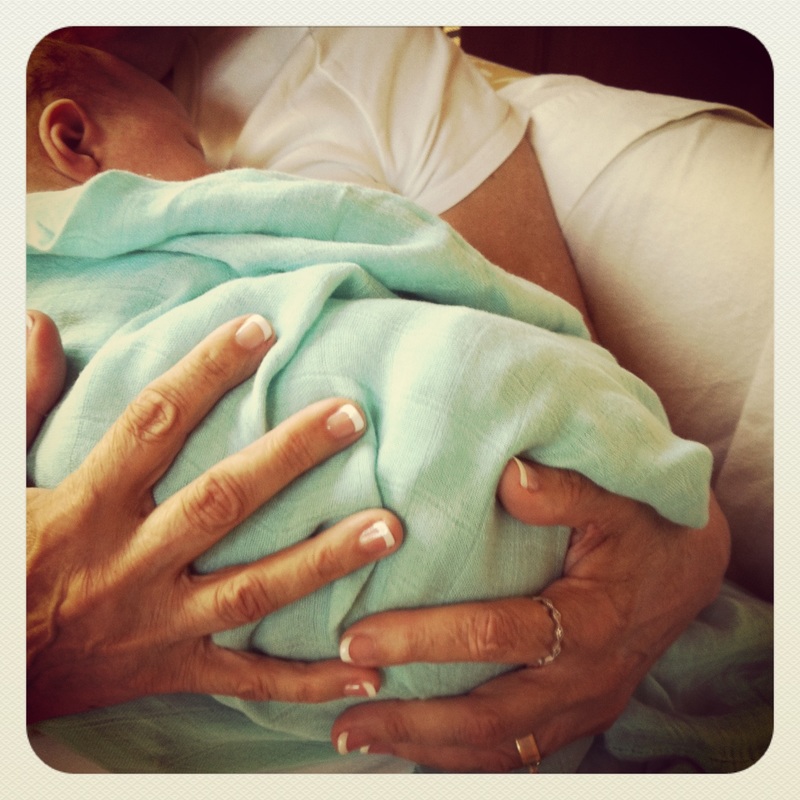
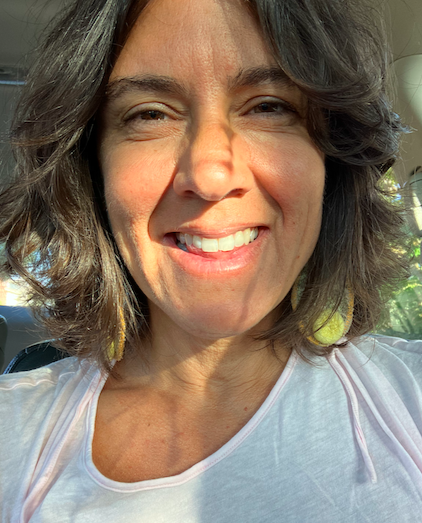

 RSS Feed
RSS Feed